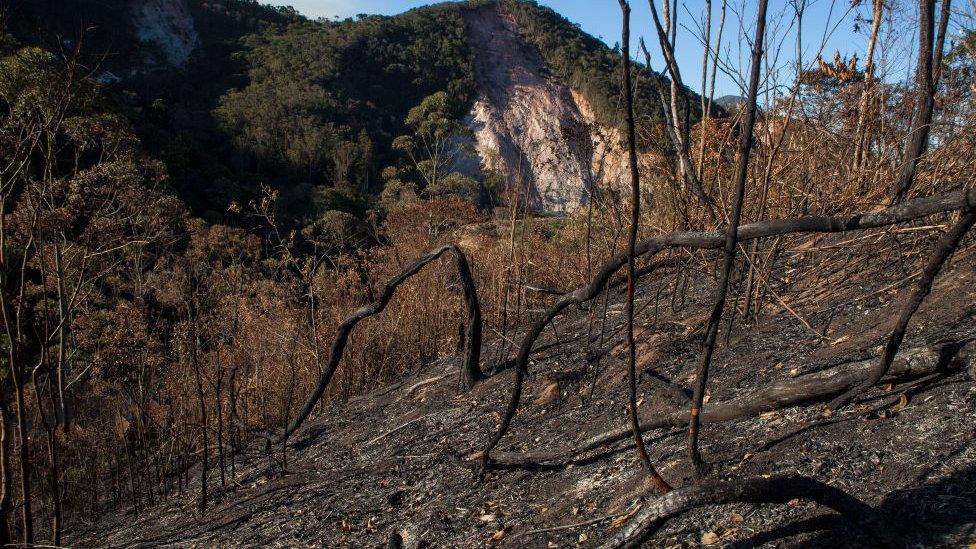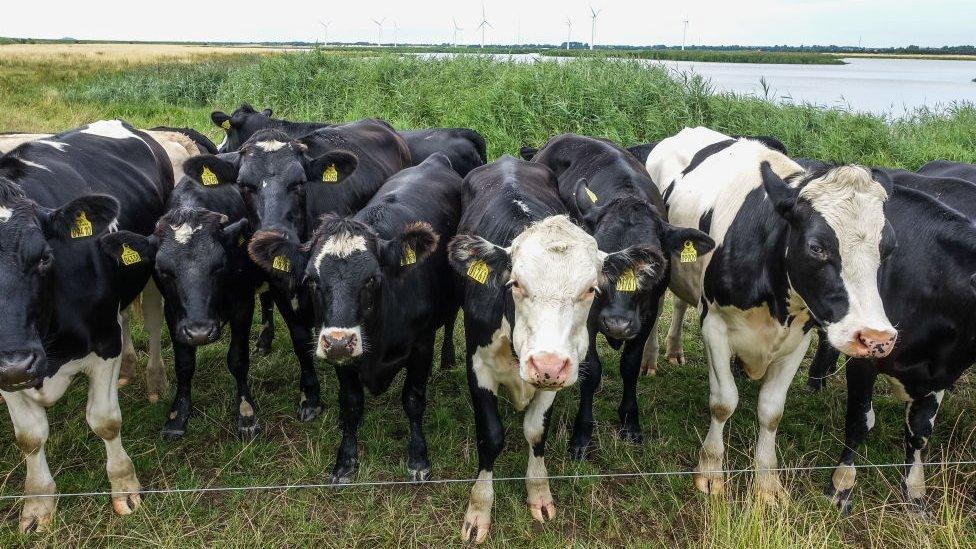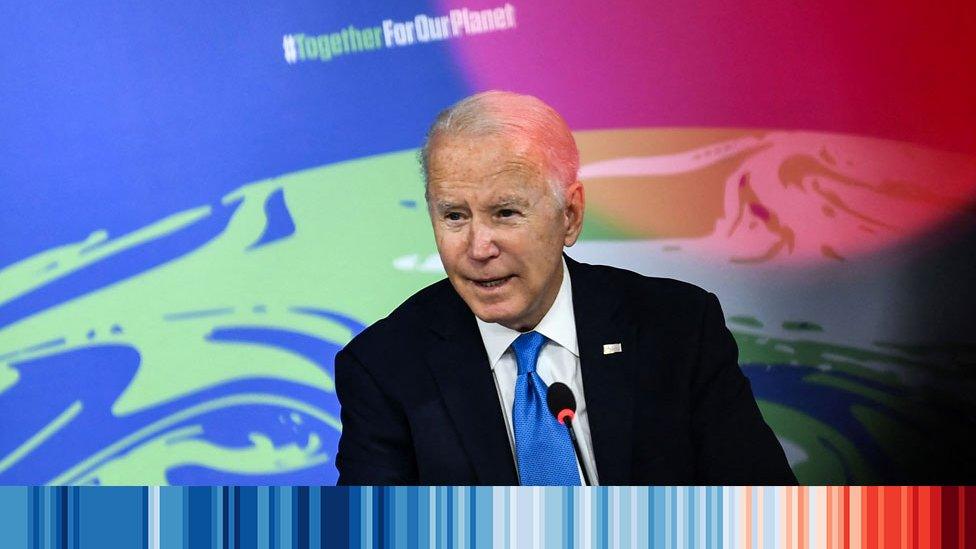Climate change: Money on the agenda at Milan talks
- Published
Greta Thunberg mocked the ''empty words and promises'' of world leaders as "blah, blah, blah"
With the jeers of Greta Thunberg ringing in their ears, climate ministers are holding final talks before a key UN conference in Glasgow.
The Swedish activist criticised the efforts of politicians to tackle climate change as "30 years of blah, blah, blah".
But despite the mockery, ministers say some progress is being made on a range of issues.
The meeting in Italy's financial capital Milan lasts until Saturday.
Earlier this week Greta Thunberg lambasted the efforts of political leaders at a youth climate summit.
She was one of 400 young people who came to Milan to formulate a response to rising temperatures that will be presented to ministers here on Thursday.
Ms Thunberg will also meet Italy's prime minister Mario Draghi.
Officials believe that despite the criticism about the slow pace of progress, the wheels are beginning to move on a number of fronts.
Last week at the UN General Assembly, announcements from China and the US on coal and climate finance, helped improve the prospects for the upcoming UN conference, known as COP26.
Negotiators meeting at this "pre-COP" event are under pressure to clear the way for their bosses, the world's presidents and prime ministers who will meet in Glasgow at the start of COP26 in early November.
One of the big issues holding up progress is the question of money.
Despite significant new promises, the wealthy nations are still around $20bn short of the long-promised $100bn a year that's meant to help poorer countries cope with rising temperatures.

Curbing deforestation is critical to keeping temperatures under 1.5C
"Isn't it ridiculous, that in the midst of a trillion dollar emergency response economy that we're seeing right now, we are haggling over a $20bn price tag to essentially unleash hundreds of billions of dollars, if not trillions of dollars of developing country investments," said the head of UNDP, external Achim Steiner.
Mr Steiner is a senior leader in the UN and has been a close observer of the climate talks process for many years.
"Time is running out, and we can't find a way in which we can finance this? It's just not acceptable," he told BBC News.
While ministers will look to make progress on cash and other outstanding questions in their discussions here over the next few days, they will be heartened by new research showing that the 1.5C temperature threshold can be kept in sight at a relatively low cost over the next decade.

Methane from agriculture is a major problem but also presents an opportunity
The report comes from the Energy Transitions Commission, external, a group made up of leaders from the energy industry, finance and climate advocacy.
They outline six actions that could be taken by companies and countries which would go beyond the carbon cutting plans and would limit warming to 1.5C.
The key steps include:
Significant and rapid cuts in methane emissions: Low cost actions could cut fossil fuel related emissions by 60% by 2030, and methane from agriculture and waste management by 30%.
Decarbonising the power sector and accelerating the phase out of coal: An immediate ban on the construction of new coal fired plants combined with a phase out of existing sources, could cut 3.5bn tonnes of CO2 by 2030.
Accelerating the electrification of road transport: The report envisages a ban on selling internal combustion engines by 2035.
Accelerating supply decarbonisation in buildings, heavy industry and transport: Commitments by leading companies and countries in steel, cement, shipping and aviation could deliver an additional one billion tonnes of emissions reductions every year.
Reinvigorating energy and resource efficiency: Improvements in energy efficiency have stalled and could be accelerated by decisions and action at COP26.
Halting deforestation and beginning reforestation: This will require significant financial support from rich developed countries and should be a priority for climate finance.
"The 1.5C threshold is absolutely technologically possible at costs which the global economy could easily absorb," said Adair Turner, the chair of the Energy Transitions Commission.
"We broadly know the categories of what is possible. We have provided, we think, a robust quantification of what's possible. And there are specific initiatives which could be taken in addition to country's carbon cutting plans, which would get us there."
"And we need them because we're running out of time."
Follow Matt on Twitter @mattmcgrathbbc, external.
- Published15 November 2021
